This quarter, we explore culture and content through the lens of the comfort influ...
Read MoreThe Rebirth of the Jingle
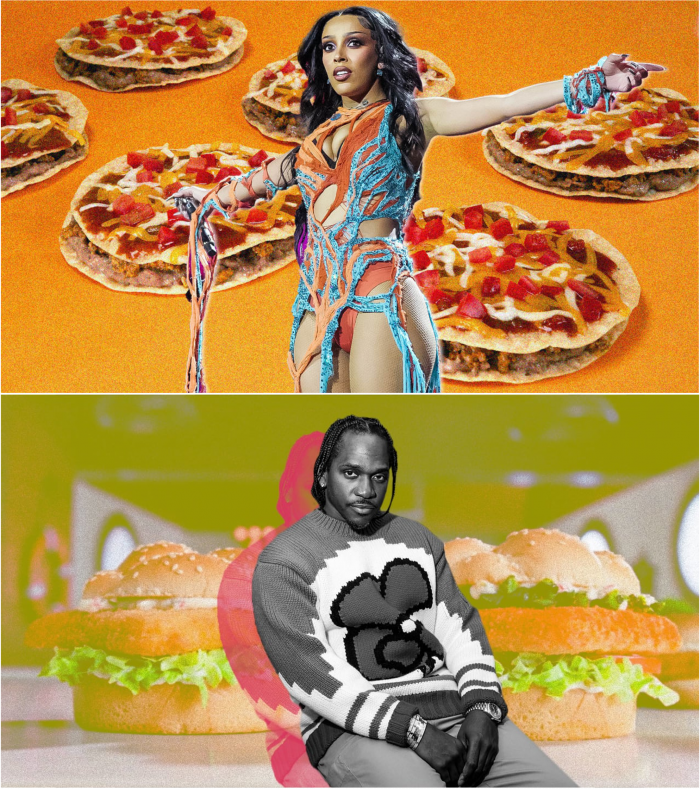
Food and bev brands are tapping celebs to create original songs, giving their jingles a major update – positioning them to be the next “celebrity menu collab trend”.
Source: YPulse
Taco Bell, Arby’s, Jif, and MTN DEW are all brands that have tapped into the likes of well-known celebrities to write and perform original songs for campaign spots (Doja Cat x Taco Bell, Push T x Arbys). Brands looking to this type of talent over the likes of athletes, actors or even online influencers are focusing their marketing towards GenZ. It seems that this generation focus on music as a major driver of attention – the songs themselves are a form of branding and have a high chance of going viral across social media platforms, especially TikTok.
Influencers on How to Navigate Pride
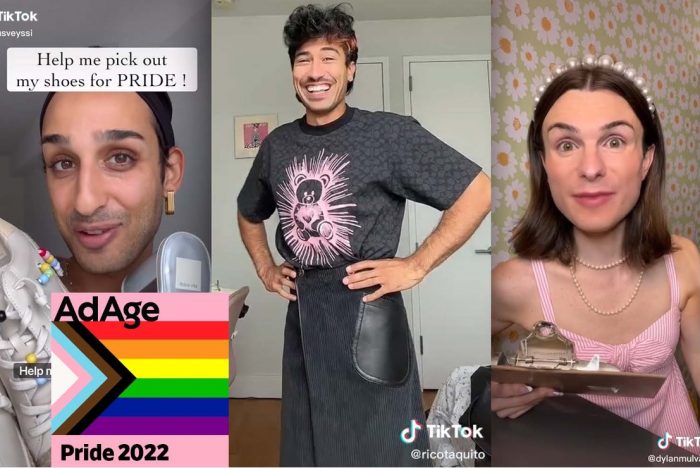
TikTokers open up about how brands pitched them on Pride campaigns this year, sharing better practices for how to best show authentic support and allyship.
Source: AdAge
A number of creators and influencers in the LGBTQIA+ community have taken to TikTok to discuss their views on Pride month, speaking on things from “rainbow washing” to influencer relations during Pride. The main take aways from most creators is of course that Pride should be part of a brand’s diversity efforts all year round and especially not an “afterthought” as one creator told their fans. Another TikToker created a video poking fun at the emails they received, with brands citing their “vivacious personality” and loving the way they “sparkle,” as they rolled their eyes at the terms used to describe why they might be a good fit.
Brands must be more mindful when reaching out to members of the LGBTQIA+ community ensuring language used is not patronising or extremely stereotypical.
#RomanticizeYourLife
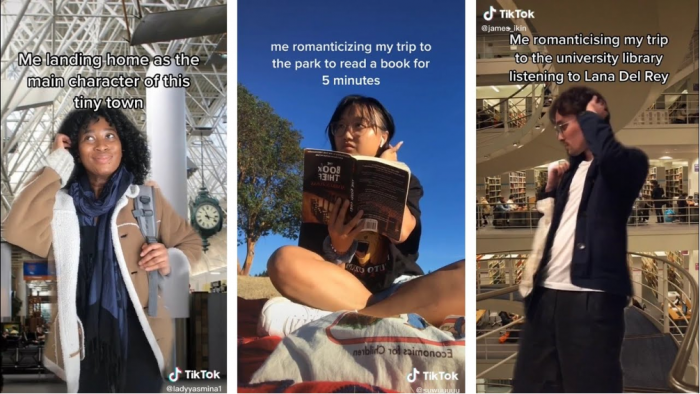
Users are sharing how they view their lives through a romantic, or cinematic lens.
Specific audios with dramatic, soundtrack-like songs are being used to create magical impact out of ordinary and mundane content, like hanging out with friends, commuting, or simple errands.
Source: YPulse
Specific audios such as “Cornfield Chase” and “Je te laisserais des mots” are being used on TikTok and Instagram as a shortcut to create romanticized content.
The trend has caught on like wildfire as young consumers look to romanticize their everyday and make themselves and their loved ones the stars of their own lives. Feeding into the also trending “main-character” energy that has become popular among Gen-Z and millennials, many users creating this content are taking it a step further and are leaning into movie tropes, teetering on the edge of parody.
This is another step and iteration towards the authenticity movement we’re seeing on TikTok of people sharing their raw and organic lives. Paired with the dramatic music, it can create captivating content, but really allows the mundane moments to be the star of the show, fulfilling that craving for real and authentic content, but making it extra fun.
Building Equity for Gen Z
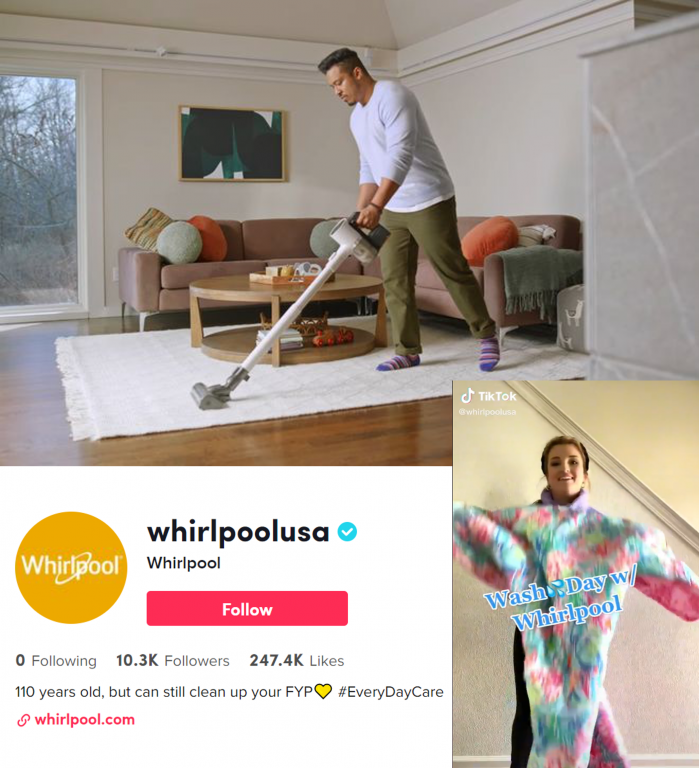
Brands like LG, Whirlpool and Gucci are focusing their marketing efforts to Gen-Z and millennial audiences.
While they may not be in the market for those products YET or able to afford them, the goal is to build continued awareness and trust for when they do inevitably have to make a purchase.
Source: AdAge, Ypulse
Legacy and luxury brands such as LG, Whirlpool and Gucci are targeting a consumer you wouldn’t expect to purchase from them, Gen-Z. While Gen-Z isn’t currently in the market for home appliances or may not be able to afford luxury brands like Gucci, these brands are working hard to stay top of mind. By gaining trust among the younger generation, when they are eventually ready to make the purchase, these will be the brands they choose.
Whirlpool is hopping into the #CleanTok discussion on TikTok, while Gucci is activating on new platforms and creating virtual experiences in the Metaverse to reach Gen-Z. Thanks to their TikTok #CleanTok presence, Whirlpool ranked 2nd this quarter on the Ad Age Harris Gen Z brand tracker, which ranks brands rising equity among Gen Z consumers.
Brands are increasingly building equity, interest and loyalty with younger generations through influencers and social-led tactics. This aligns with trends, insights and data coming from powerhouses like Meta on the importance of using influence to cement brands in culture and keep them relevant in highly competitive markets.
Trial by TikTok
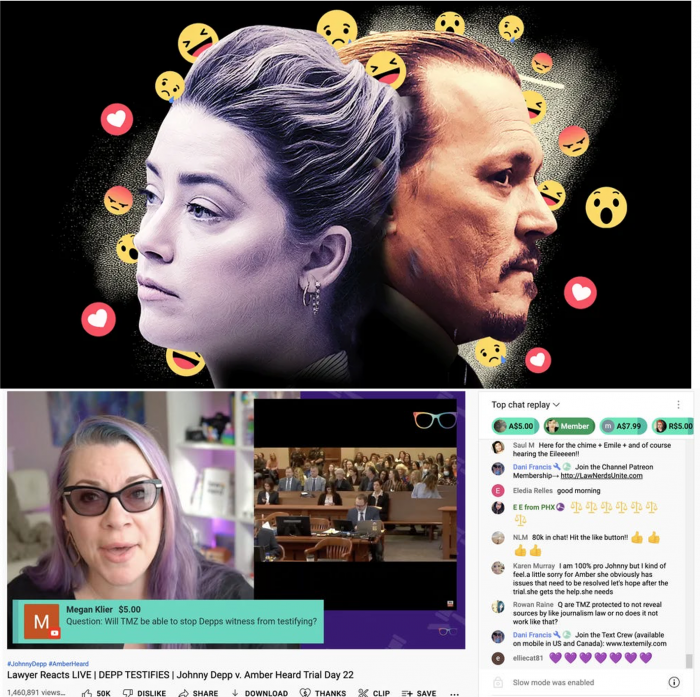
The Depp vs. Heard trial created a frenzy on both traditional and social media with everyone sharing reactions and POVs on social media platforms.
Lawyers shared their opinions on TikTok and YouTube, and many went unintentionally viral. Lawyer Emily D Baker was the top 3 streamed lived channels on Youtube surpassing all major news outlets AND the White House.
Source: Business Insider, CNET, BBC
Depp vs. Heard demonstrated the strong and real connection between culture and social virality, helping to catapult less known communities and centres of influence overnight.
This has a lot of implications on B2B marketing and it’s evident that social media users seek and look to hear from credible experts moreso than news outlets. Trust in media outlets to bring the right credibility to their channels is decreasing, especially among millennial and Gen Z audiences.
Contesting Ageism
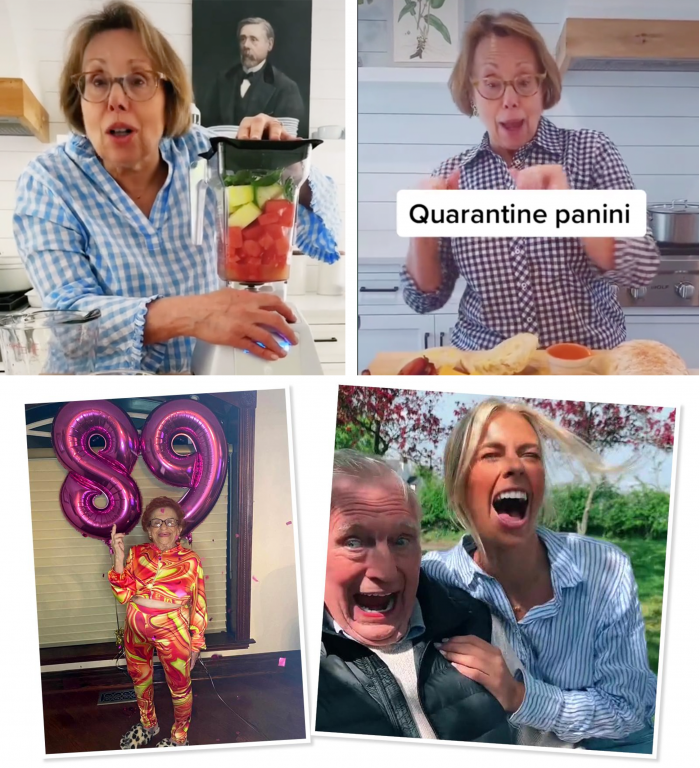
A survey found that older people are using TikTok to challenge outdated ageist perceptions.
Researchers analyzed content from users age 60+ in the mid-tier to celeb range on TikTok, and found that 71% of the videos were used to defy age stereotypes.
Source: The Guardian, TheVibes.com
There has recently been an influx of stereotype-defying content from the older creator community such as chugging alcohol, showing off their pole dancing or weightlifting skills, and an embrace of the word ‘glamma’ – a word combining ‘glamorous’ and ‘grandma’.
While it’s interesting to see a differently age demo take off on a platform that gained notoriety among a younger generation, the refreshing takes on countering ageism have been successful in part due to their relatability (people see their family members in these creators) and humor (the lighthearted, fun way that the content has been approached is native to what we typically see on the platform).
Oftentimes, marketers and brands are targeting Gen-Z and millennial audiences with a focus on diversity in race, appearance, ability, etc., but age is often left out of the question. With the rising voices of “Glammas” and your TikTok grandparents, it’s important for marketers to take even further steps towards inclusivity for all audiences. It’s also important to remember that the audiences of these older influencers still very much can lean on the younger side, making them relevant in targeting Gen-Z, despite the age gap.




